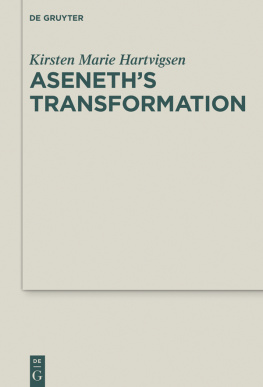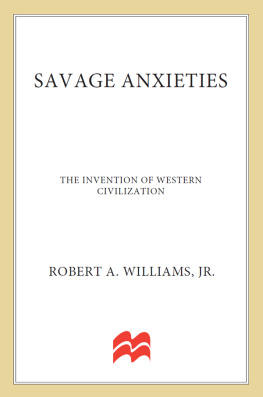Routledge Library Editions
Anthropology and Ethnography
THEORY OF ANTHROPOLOGY
In 10 Volumes
| I | Political Systems and the Distribution of Power |
| Banton |
| II | Marxist Analyses and Social Anthropology | Bloch |
| III | Marxism and Anthropology | Bloch |
| IV | The Observation of Savage Peoples | Degrando |
| V | Primitive Law Past and Present | Diamond |
| VI | Anthropology and the Greeks | Humphreys |
| VII | Theory in Anthropology | Manners & |
| Kaplan |
| VIII | The Theory of Social Structure | Nadel |
| IX | Readings in Early Anthropology | S lot kin |
| X | Classification and Human Evolution | Washburn |

First published in 1969
Reprinted in 2004 by
Routledge
2 Park Square, Milton Park, Abingdon, Oxon, OX14 4RN
Transferred to Digital Printing 2009
Routledge is an imprint of the Taylor & Francis Croup
1969 F. C. T. Moore
All rights reserved. No part of this book may be reprinted or
reproduced or utilized in any form or by any electronic, mechanical,
or other means, now known or hereafter invented, including
photocopying and recording, or in any information storage or retrieval
system, without permission in writing from the publishers.
The publishers have made every effort to contact authors/copyright
holders of the works reprinted in Rout ledge Library Editions
Anthropology and Ethnography. This has not been possible in every case,
however, and we would welcome correspondence from those
individuals/companies we have been unable to trace.
These reprints are taken from original copies of each book. In many
cases the condition of these originals is not perfect. The publisher has
gone to great lengths to ensure the quality of these reprints, but wishes
to point out that certain characteristics of the original copies will, of
necessity, be apparent in reprints thereof.
British Library Cataloguing in Publication Data
A CIP catalogue record for this book is available from the British Library
The Observation of Savage Peoples
ISBN 0-415-32556-0 (set)
ISBN 0-415-33062-9
epub ISBN 9781136549281
Miniset: Theory of Anthropology
Series: Routledge Library Editions Anthropology and Ethnography

First published in England in 1969
by Routledge & Kegan Paul Limited
Broadway House, 6874 Carter Lane
London, E.C.4
Translated from the French
Considrations sur les mthodes suivre dans
lobservation des Peuples Sauvages 1800
Typography by Keith Kneebone
Printed in Great Britain
by C. Tinling & Co. Ltd
Liverpool, London and Prescot
F. C. T. Moore 1969
No part of this book may be reproduced
in any form without permission from
the publisher, except for the quotation of
brief passages in criticism
SBN 7100 6249 4
Contents
List of Illustrations
The research on which this book is based was made possible by St. Antonys College, Oxford, and by Birmingham University. I owe a debt to present and past friends and colleagues, and especially to the following, whose help and encouragement were, in their various ways, indispensable: Sir Isaiah Berlin, Austin Duncan-Jones, E. E. Evans-Pritchard, Henri Gouhier, Douglas Johnson, Evelyn Lawton, Godfrey Lienhardt, Rodney Needham, Ahmed al-Shahi, Gillian Sinclair.
F.C.T.M.
I am grateful for the privilege of being associated with this book, but there is no need for me to write more than a brief preface, for the text is perfectly clear and all that requires to be said by way of introduction to it is said by Dr. Moore. We are indebted to him for the rediscovery of Degrandos paper and for his translation of it and his discussion of its significance, for it is a paper of great interest to both anthropologists and students of the history of ideas. It is remarkable that it should have been forgotten for so long: I cannot remember a single reference to it in books dealing with the development of social anthropology.
The idea that anthropology is a natural science which should study human institutions by the same methods of observation and comparison as are employed in the study of physical and organic phenomena was a fairly common notion in the eighteenth century. Where Degrando was original was in recognizing and stating that for the most part observations made by explorers among savages were casual and superficial and did not therefore provide an adequate guide to their customs, and thought: what was needed were detailed studies of primitive peoples such as were not made, on the scale he wanted, till over a century later.
He thought, however, that something might be achieved by giving informed advice to those French expeditions at the time setting forth on their explorations, in which scientific, political, commercial and humanitarian interests were all mixed up. The advice consisted firstly in pointing out the faults of earlier travellers he must have been well-read in the travel literature of his day and secondly in listing the topics about which observations should be made, and recommending how they should be made. In doing so, he showed much insight, emphasizing all the major techniques of inquiry which anthropological students now take for granted in conducting their fieldwork, but were first set forth clearly in Degrandos paper. To mention only a few: research over a long period; a knowledge of the native language; participation in the life of the people being studied; sampling; careful checking of information; the conducting of systematic inquiries and the keeping of systematic notes; the collection of vernacular texts; precision in the use of terms; and the study of every aspect of social life, since one set of activities cannot be fully understood without a knowledge of the other. The paper reads as though it might have been written yesterday.
However, nothing came of all this, and the expedition to Australia, for which it was primarily written, was ethnographically speaking a disaster. Degrando was asking too much of explorers with a wide range of other interests, and Dr. Moore may well be right in suggesting that the practical failure of Degrandos paper may also have been due to the decline in French colonial ambitions; for certainly the development of social anthropology in England is linked to the spread of our colonial empire and its administrative, missionary and commercial needs.
E. E. EVANS-PRITCHARD
Full bibliographie details of Degrandos text, which I happened on in the Bibliothque nationale in Paris, are given in the appropriate place in the bibliography.
No editorial changes have been made: the text is translated as it stands, including the shoulder headings.
The introduction is sparingly documented by footnotes referring to the bibliography, which provides for fuller documentation or further enquiry.













